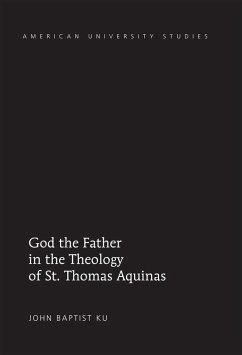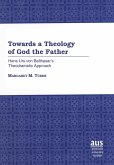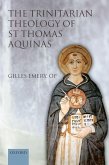God the Father in the Theology of St. Thomas Aquinas is an exposition of Aquinas' theology of God the Father as a coherent whole. Surprising as it might be, there has not been an extended treatment of Aquinas' theology of God the Father. Three misconceptions are addressed: (1) the idea that Aquinas' speculative Trinitarian theology is detached from Scripture; (2) the supposition that in Aquinas' understanding, the Father's relation to the Holy Spirit is an afterthought to the Father's relation to the Son; and (3) the view that for Thomas, the Father has no proper mode of action in the created universe - since Thomas maintains that in all ad extra activity, the Trinity acts as a single principle. Two less polemical, more perennial issues are discussed as well. First, the concept of relation, as the key to a coherent account of three distinct persons in one same divine essence, emerges as an important theme in Aquinas' exposition of the Father's paternity and innascibility. Second,Aquinas understands the Father as the source of unity in the Trinity and as the beginning and end of the whole created universe. It becomes clear that St. Thomas places forceful emphasis on the Son's equality to the Father and on the radical difference between the creator and the creature.
Bitte wählen Sie Ihr Anliegen aus.
Rechnungen
Retourenschein anfordern
Bestellstatus
Storno








